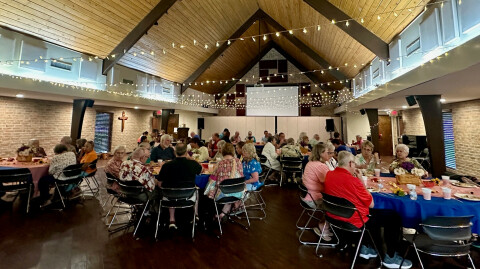TLDR: Women of the Apocrypha can be viewed under different lenses, and there are a number of lessons to be learned from their faithfulness to God.
Introduction
Moving from the Hebrew Scriptures to the Apocrypha sees a slight shift as the focus turns to women in “courtier” positions. Many theologians that are labeled as “Feminist Theologians'' wonder if the women fit modern views of feminism. One quick note here about labeling theologians: a former leader in the Houston area Spiritual Director Community pointed out that those with “traditional” views are not labeled as “patriarchal” theologians. This is a fair point (from someone who is theologically conservative, comparatively).
In the Apocrypha, women (such as Judith) seem to be stronger, with clear links to God. This is similar to what we will see in the New Testament: women speak explicitly of their faith.[1] Remember when Sarai reprimanded Abram for his “relationship” with Hagar? She told him God would deal with the two of them. It was a clear reference to her faith and understanding of God’s judgment.
There is a different view of women in the Apocrypha between Feminist and Patriarchal views. The former tries to paint the women as bolder and counter cultural. The latter try to over emphasize the women functioning within their traditional roles. Personally, I am going to take the Episcopal path: I think it is a “yes and”[2] for the women in the Apocrypha. The women that I discuss in this section were obviously devoted Jewish women functioning within their culture. However, they were also called upon to stretch boundaries in order for God’s will to be done. I am interested in your view. Though I will be leaving in a few weeks, feel free to email me with your comments (or we can set up a time to grab a Starbucks!).
Judith
Judith was a widowed warrior in a time when her people were being subjugated. It is unclear if Judith lived near Samaritan territory, however, what is clear is that when this conquering army came through, everyone was singing laments in the streets: men and women. For the first seven chapters of the book, Judith is not mentioned. Finally, upon her entrance she begins plotting and planning to murder the conqueror-in-chief: Holofernes. The next part is fairly R-rated; however, I will say that Judith uses her God-given gifts to persuade Holofernes of her goodness. Keep in mind, she is another wealthy beauty.
Her actions of tricking Holofernes remind us of Jacob in the Old Testament. Yet unlike Jacob, perhaps more like his mother Rebecca, she can see the bigger picture. She recognizes that with Holofernes dead, the people will be freed. Judith is not without qualms; she prays and considers her actions carefully before finally lopping off Holofernes’ head. When she returns from this mission, she goes back to her life as a privileged widow.[3]
Judith’s ministry is clear: she is a woman who leads and acts. She can also care deeply for her fellow Jews. She is in many ways an ordinary woman, yet one who is also independent and strong.
Judith is a traditional Jewish widow and embraces this role (the patriarchal views of the Bible are thus proved correct); as soon as she has accomplished her task, she resumes her life without a hitch. At the same time, the feminist view of the Bible is not wrong: most Jewish widows would have shied away from the bedroom scenes and violence. This is a traditional male role in the Bible (remember King David). Judith serves as both a traditionalist and a trendsetter for women.
Esther
The next character, Esther, appears in both Hebrew Scriptures as well as The Apocyrpha. I will distinguish her character by using the terms: “Greek Esther” and “Hebrew Esther.” Generally speaking, “Greek Esther” is another spunky character, and she is only slightly different from the “Hebrew Esther.”
What I enjoy about this second book is the addition of God and prayer as something that is obvious throughout the text. While “Hebrew Esther” is clearly a devoted Jewish woman who saves her people by advocating on their behalf with the king, in the Hebrew Scripture text God is not mentioned once. This is different in the Apocrypha where there are explicit prayers and conversations about faith.
Similar to the other women in the Biblical texts, all of her actions must be rooted in faith and love. Her entire care is given to God and centered around her faith. She is intentional in her dressing in sackcloth and then in her dressing to address the king. Both are instrumental in the role she plays for God. Esther’s role is to embrace her gifts from God: her femininity and her intelligence in order to deliver her people.
Esther resembles Judith in her portrayal as both a trailblazer and a devoted Jewish woman. As a trailblazer: she marries a non-Jewish King for the good of her people. Yet, “Greek Esther” very explicitly prays to God for strength. Personally, I think this later addition of Esther shows a woman who is more traditional, and I daresay stronger than the Hebrew Scripture counterpart. The difficulty of both books, for me, is dealing with the revenge at the end of the books.
Susanna
The last woman of the Apocrypha that I will focus on also has a royal background. The idea of using a powerful position as a point of honoring God is a theme throughout The Apocrypha (and in many ways The Hebrew Scriptures).
Here is a recap of the story: Susanna is a married woman who is approached by two “elders” that try and rape her. The book, as originally written, painted a flat portrait of her where she does not speak after the first few chapters.[4] In both versions, Daniel ends up saving Susanna and she moves forward. The point of Susanna’s story is clear: remain faithful in guarding your virtue and living for God. This is a text aimed at reminding people generally, and women specifically about the importance of this fact.
In later years, Susanna was used as an allegory of the relationship between Christ and Christ’s church. The idea being that if Christ can guard Christ’s virtue it is a blessing to him. I think this is a thin interpretation, however, what I can say is that God is ever faithful, and it is our job as Christians to remain faithful in the gifts we have received from God.
Feminist theologians tend to struggle with Susanna since most translations have her remain silent. The text lends itself to being interpreted as conservative. Personally, this is not problematic. There is a time to speak and a time to be silent.[5] I think this book allows those with the cultural power to use their voice in favor of those with less power. To think about that point in another way, in his book, Brad Sullivan refers to times when one person does not believe every part of the creed and relies upon the faith of their siblings in Christ.[6] Susanna shows Christians how to advocate for their neighbor.
Concluding Thoughts
The Apocrypha is used for teaching. As such, the lesson we, as Christians, learn is meant for conversation. I encourage you to think about these texts and how they speak to your life. Here are my thoughts: sometimes our ministry is to boldly proclaim God’s words and protect God’s people as “Greek Esther” and Judith did in their stories. Sometimes, it is our role as God’s children to guard ourselves and allow others to help protect our Godly virtues as in the book of Susanna. Your thoughts are just as valuable and just as welcome as my own.
For His Sake,
Mtr. Beth Anne +
Sources
- Barr, B.A. (2021). The Making of Biblical Womanhood: How the Subjugation of Women Became Gospel Truth. Ada: Brazos Press.
- Bellis, A.O. (2007). Helpmates, Harlots, and Heroes, Second Edition: Women's Stories in the Hebrew Bible. Louisville: Westminster John Knox Press.
- Burge, G.M.; Green, G.L. (2020). The New Testament in Antiquity, 2nd Edition: A Survey of the New Testament within Its Cultural Contexts. Grand Rapids: Zondervan.
- Carol, N.A. and Sharon Ringe, S., ed. (1992). Women’s Bible Commentary with Apocrypha, Expanded Louisville: Westminster John Knox Press.
- Coogan, M.D., ed. (2018)The New Oxford Annotated Bible. Oxford: Oxford University Press.
- Dzubinski, L.M. Stasson, H. (2021). Women in the Mission of the Church: Their Opportunities and Obstacles throughout Christian History. Ada: Baker Academic.
- Gafney, W. (2017) Womanist Midrash: A Reintroduction to the Women of the Torah and the Throne. Louisville: John Knox Press.
- Matis, H. (2022). A History of Women in Christianity to 1600. Oxford: Wiley-Blackwell.
- Swan, L. (2007). Forgotten Desert Mothers, The: Sayings, Lives, and Stories of Early Christian Women. Mahwah: Paulist Press.
- Zartmann, B. (2019-2022). Christian Formation at Christ Church Cathedral.
[1] Carol, N.A. and Sharon Ringe, S., ed. (1992). Women’s Bible Commentary with Apocrypha, Expanded Edition. Louisville: Westminster John Knox Press.
[2] Carpenter, L (2022). The Gospel According to Improv: A Radical Way of Creative and Spontaneous Living. New York: Church Publishing.
[3] Carol, N.A. and Sharon Ringe, S., ed. (1992). Women’s Bible Commentary with Apocrypha, Expanded Edition. Louisville: Westminster John Knox Press.
[4] Newsom, Carol A. and Sharon Ringe, ed. (1992). Women’s Bible Commentary with Apocrypha, Expanded Edition. Louisville: Westminster John Knox Press.
[5] Ecclesiastes 3
[6] Sullivan, B. (2022). For the Hurt, The Blessed, and the Damned. Houston: Brad Sullivan.





